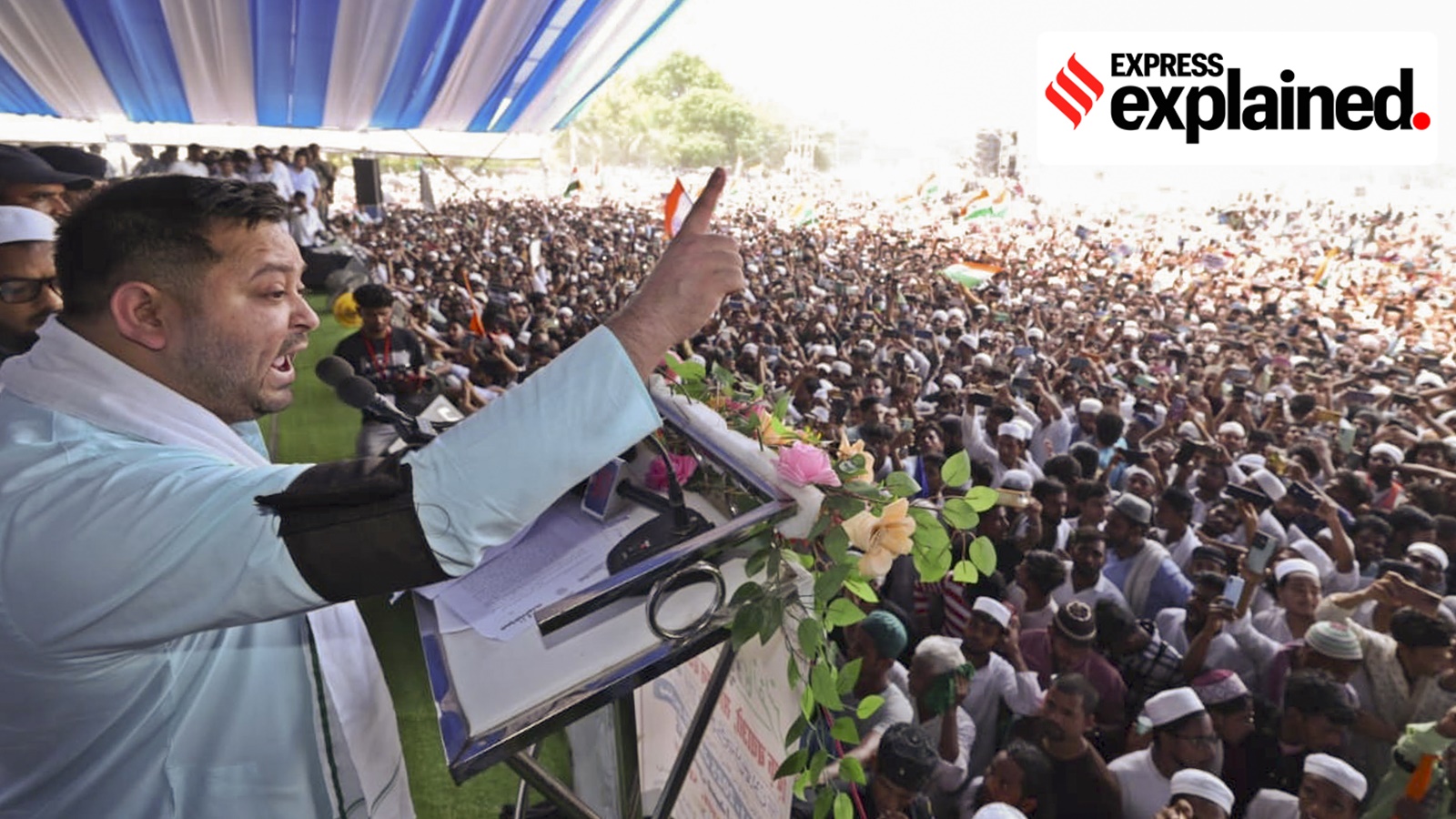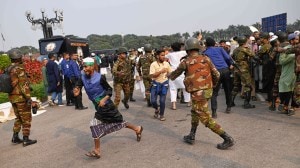The Waqf Act has been challenged in court, and the Supreme Court in May, after hearing multiple petitions, reserved its decision on the law. So why are protests in Bihar heating up now? We explain.

The Patna rally
The rally in Patna on June 29 was organised by Imarat-e-Shariah, one of the largest socio-education-religious body of Muslims in India.
 A man waves the national flag during the ‘Waqf bachao, dastoor bachao conference’ against the ‘Waqf Amendment Bill’, at Gandhi Maidan in Patna on Sunday. (ANI Photo)
A man waves the national flag during the ‘Waqf bachao, dastoor bachao conference’ against the ‘Waqf Amendment Bill’, at Gandhi Maidan in Patna on Sunday. (ANI Photo)
Imrat-e-Shariah chief Faisal Rahmani, who heads the organisation’s operations in Bihar, Jharkhand, Odisha, and West Bengal, said that though the amendments to the 1995 Waqf law have been passed in Parliament, he does not believe all is lost yet. “If the Centre can take back the three farm laws because of overwhelming protest from farmers, the same thing can happen with the Waqf amendments. The changes in the new Act are facing heavy resistance in several states,” Rahmani said.
What are the demands of the Imarat-e-Shariah?
The Imarat-e-Shariah says that as the Centre dismissed 300-plus representations about the amendments, it has now decided to summarily reject the amended Act, demanding reinstatement of the Waqf Act, 1995.
Rahmani pointed out that is is difficult to furnish documents proving Waqf ownership of old properties, and asked if the Centre would demand similar paperwork for the places of worship of other religions. He called the amendnents an “attack on brotherhood and citizenry.”
Why has the Muslim body chosen Bihar as the main ground for protest?
Story continues below this ad
Bihar has over 17 per cent Muslim population, usually believed to be the constituency of the RJD and the Congress. The state goes to polls in a few months, and the Opposition parties are trying to capitalise on the anti-Waqf Act sentiments.
Plus, the Imarat-e-Shariah has traditionally had a strong presence in Bihar from the time of its former chief the late Wali Rahmani, who founded the popular coaching programme Rahmani30 in 2008.
The organisation has been getting direct and indirect support from non-NDA parties, especially from the RJD. Leader of Opposition Tejashwi Yadav had been the main speaker at the Gandhi Maidan rally, which was very well-attended.
What next?
Now that it has held a successful rally in Bihar, the Imarat-e-Shariah plans to revisit its district units in Bihar, West Bengal, Jharkhand, and Odisha to further intensify the protests at ground levels. It also plans to interact with like-minded bodies from UP, Maharashtra and other states to consider a rally at a bigger level, preferably in New Delhi.
Story continues below this ad
What are the main objections to the Waqf Act?
In the legal challenges to the amendments, some key issues were flagged. The first was the doing away of the concept of “Waqf by use”, which means that land used for Muslim religious or charitable purposes for a long time can be deemed to be a Waqf even if it is not registered as such.
The inclusion of non-Muslims in Waqf boards; the District Collector getting powers to decide that a Waqf property is government property; and allowing the applicability of the Limitation Act with respect to Waqf properties — which would prevent the Waqf board from making legal claims, like opposing encroachment, about a property after a certain period had elapsed — are among the other changes being opposed.
In April, the Centre assured the Centre that it would pause the doing away of the ‘Waqf by use’ provision and inclusion of non-Muslims on Waqf boards.



 A man waves the national flag during the ‘Waqf bachao, dastoor bachao conference’ against the ‘Waqf Amendment Bill’, at Gandhi Maidan in Patna on Sunday. (ANI Photo)
A man waves the national flag during the ‘Waqf bachao, dastoor bachao conference’ against the ‘Waqf Amendment Bill’, at Gandhi Maidan in Patna on Sunday. (ANI Photo)




































